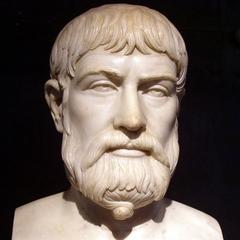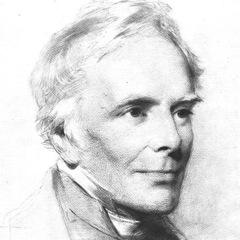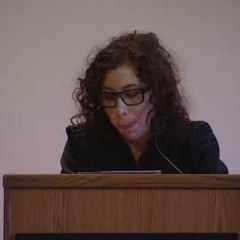Geoffrey Chaucer Quotes - Page 4
Geoffrey Chaucer (1895). “The Student's Chaucer: Being a Complete Edition of His Works”
Geoffrey Chaucer (2006). “The Canterbury Tales”, p.451, Bantam Classics
One flesh they are; and one flesh, so I'd guess, Has but one heart, come grief or happiness.
Geoffrey Chaucer, David Wright (1998). “The Canterbury Tales”, p.247, Oxford University Press, USA
Geoffrey Chaucer, Thomas TYRWHITT (F.R.S.) (1843). “The Poetical Works of Geoffrey Chaucer. With an Essay on His Language and Versification, and an Introductory Discourse; Together with Notes and a Glossary. By Thomas Tyrwhitt. [With a Portrait.]”, p.248
Geoffrey Chaucer, George Philip Krapp (2006). “Troilus and Cressida”, p.141, Courier Corporation
Geoffrey Chaucer (1966). “The Canterbury Tales”
Geoffrey Chaucer (2012). “Troilus and Cressida”, p.33, Courier Corporation
But manly set the world on sixe and sevene; And, if thou deye a martir, go to hevene.
Geoffrey Chaucer (2013). “Delphi Complete Works of Geoffrey Chaucer (Illustrated)”, p.447, Delphi Classics
Geoffrey Chaucer (2006). “The Canterbury Tales”, p.451, Bantam Classics
Take a cat, nourish it well with milk and tender meat, make it a couch of silk.
Geoffrey Chaucer (1966). “The Canterbury Tales”
Geoffrey Chaucer (2013). “Delphi Complete Works of Geoffrey Chaucer (Illustrated)”, p.530, Delphi Classics
A yokel mind loves stories from of old, Being the kind it can repeat and hold.
Geoffrey Chaucer (1966). “The Canterbury Tales”
Geoffrey Chaucer, David Wright (1998). “The Canterbury Tales”, p.152, Oxford University Press, USA
Geoffrey Chaucer (2014). “The court of love and other works”, p.238, Lulu.com
Geoffrey Chaucer, Thomas Tyrwhitt (1798). “The Canterbury Tales of Chaucer. To which are Added an Essay on His Language and Versification, and an Introductory Discourse Together with Notes and a Glossary”, p.17
Geoffrey Chaucer (1966). “The Canterbury Tales”
Ther nis no werkman, whatsoevere he be, That may bothe werke wel and hastily.
Geoffrey Chaucer (2016). “The Merchant's Prologue and Tale”, p.59, Cambridge University Press
Geoffrey Chaucer, “The Wife Of Bath's Tale”
For thogh we slepe, or wake, or rome, or ryde, Ay fleeth the tyme; it nyl no man abyde.
Geoffrey Chaucer (2012). “The Canterbury Tales in Plain and Simple English (Translated)”, p.368, BookCaps Study Guides
Filth and old age, I'm sure you will agree, are powerful wardens upon chastity.
Geoffrey Chaucer (1959). “The Canterbury Tales”







